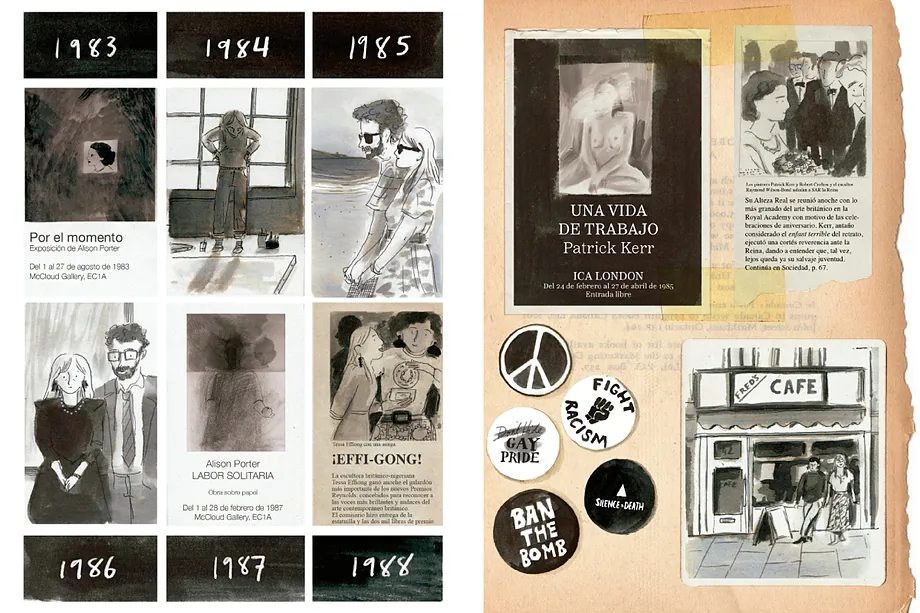Lizzy Stewart signs one of the best British comics: a woman’s journey to emancipation in the shadow of a genius.
Advertisement
Famous man meets young woman and offers her everything she could wish for in exchange for his company. A fascinating life, advice that no one has asked for (a textbook mansplaining, wow) and the possibility of controlling her future under the condescending promise of “it’s for your own good”, or, further, “it’s best for both of us”.
What has been described is the lowest common multiple of many fictions, such as Tim Burton’s enigmatic Big Eyes (2014) or Sofia Coppola’s recently released Priscilla, which portrays Elvis Presley as a textbook manipulator. It is also, on paper, much of the essence of the graphic novel Alison (Errata Naturae), written and illustrated by Lizzy Stewart: the universal tale of a young working-class girl trying to make a place for herself in a world not designed for her.
The comic sold out its first edition in less than two months after its arrival in Spain in November and the newspapers The Guardian and The Telegraph named it Best Graphic Novel of the Year in the United Kingdom. It is a false autobiography: the author explains that the story is less than 10% about herself, but 90% about the women around her, who inspired her to create Alison. “One of them married a professor whom she admired very much. She learned a lot from him but her life was a torment,” she says from Barcelona, where she is presenting her work to the media and fans.
With a subtlety that tightens the lump in our throat, the book recounts, from Alison Porter’s old age, her life as a “village girl” born in the south of England in the late 50s and raised in boredom and monotony. The young woman’s expectations for the future are reduced to repeating the pattern of her mother and grandmother: to tie herself to a marriage with more routine than passion, to form a canonical family and to give up any hint of a professional career.
Patrick Kerr, a narcissistic painter 30 years older, from a cultured, wealthy and well-connected family who is making a name for himself in the art world, bursts into her bubble. Kerr promises to become her mentor and exhibit her work in the best galleries in London. And of course, despite the age difference and dangerous power games, Patrick becomes Alison’s safe-conduct to emancipate herself and finally break away from what the patriarchy expects of her.
“There’s a very good movie from the late ’60s with Audrey Hepburn, Two on the Road, where you see the complexities of such a relationship, the sense of imbalance. I was inspired by it and by the testimonies of many women who aspire to the perfect balance and don’t dare to ask themselves what would happen if they don’t want to get married or if they don’t want to have children,” explains the author.

